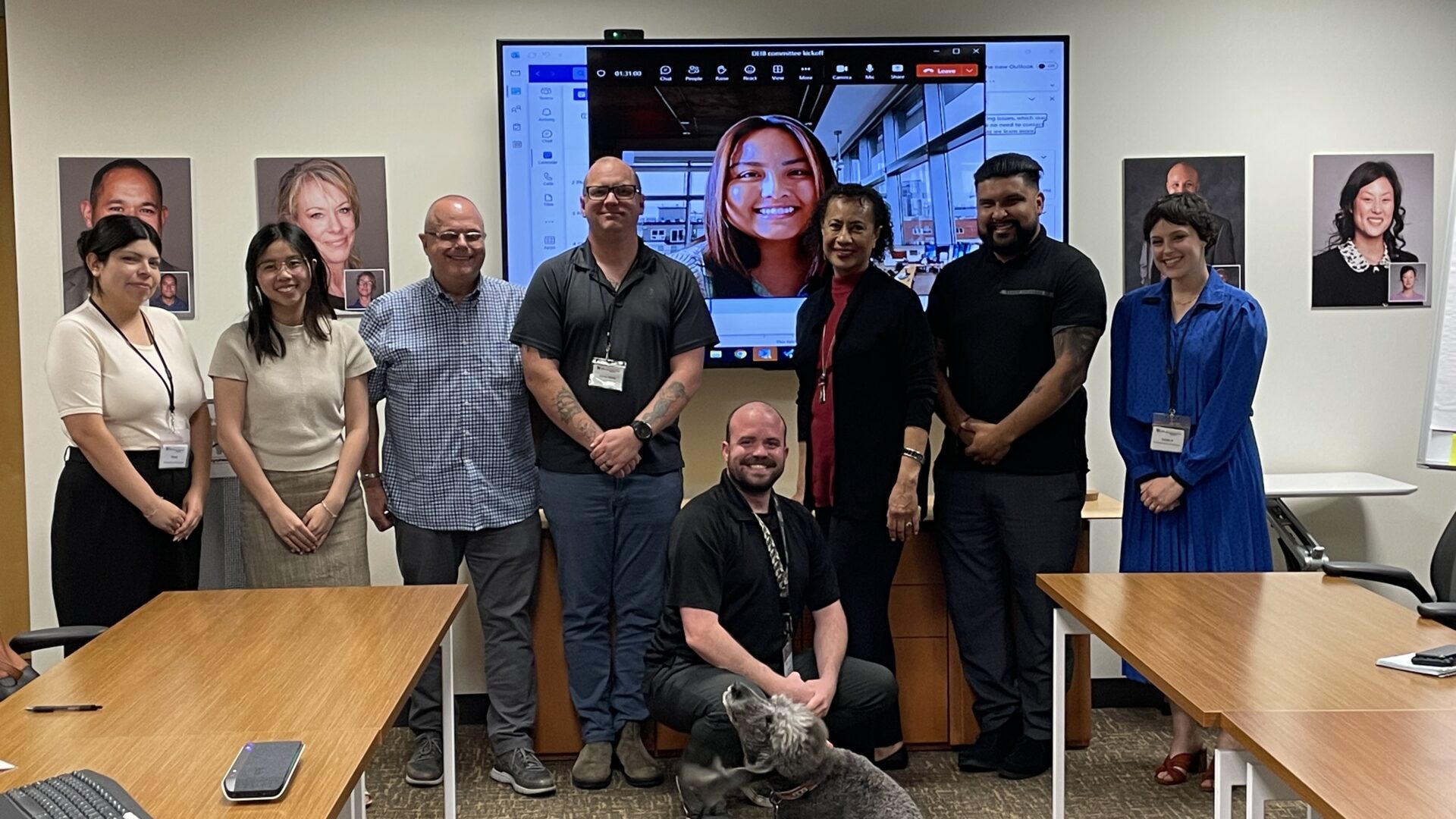Everyone is unique. Everyone is important. Everyone has a story.
According to Elsa O’Hare, Co-Founder & COO at United Workplace Equality & Inclusion Network, acknowledging these three truths is imperative for organizations seeking to employ Diversity, Equity, Inclusion, and Belonging (DEIB) initiatives. Elsa generously donated her time and expertise as an advisor to Working Wardrobes as the organization launched its DEIB committee this month.
Elsa and a small group of Working Wardrobes staff members, representing many departments and levels of leadership, gathered for the first time on June 7th, kicking off an initiative to create the organization’s DEIB statement, seek out DEIB training opportunities, and ultimately lead the charge to implement DEIB tactics organization-wide. Elsa shared wisdom, anecdotes, and philosophies foundational to creating a workplace that not only accepts all but celebrates all.
As staff shared their personal and professional motivations for joining the committee, it became clear that the group itself is made up of diverse individuals, each with a unique vision for the initiative, an important perspective, and a story to share. Members agreed that Working Wardrobes is a workplace where they feel they belong. The leadership team cultivates a strengths-based environment, where employees are celebrated for their achievements and encouraged to do more of what they’re good at and what they love.
This individualization is also at the heart of how Working Wardrobes interacts with clients. The Rebuilding Careers program is bespoke; every client receives an Individualized Employment Plan tailored to address their specific barriers and needs. Our team of Career Navigators are experts in helping clients leverage what makes them unique, their important skill sets, and their stories to achieve career success.
But recognizing and celebrating individuality is only one piece of the DEIB puzzle. Elsa guided the team through a conversation about the difference between equity and equality. She used an imagined party to illustrate her point: being invited to a party is meaningless if none of the other guests talk to you or make you feel welcome.
This example sets the stage for exploring the nuance that accompanies DEIB. Imagine this: you’re throwing a party, and you’ve invited people of all ethnicities, races, religions, abilities, sizes, socioeconomic backgrounds, and levels of education. You have a diverse guest list, to say the least. However, there’s a set of stairs leading up to your front door that someone using a wheelchair can’t climb. There’s no private room where someone of Islamic faith can step away to pray. The nearest bus stop is a 5-mile walk away, making public transportation to the party inaccessible. In this scenario, there’s equality in your guest list – everyone is invited – but equity is absent. What good is an invitation to a party if you face a barrier to entry?
Unfortunately, not every “party” or workplace will be perfectly equitable. Helping clients overcome the barriers inequity creates on the road to gainful employment is what Working Wardrobes does best. The launch of our DEIB Committee is the first of many steps towards ensuring our organization is a place where unique needs are accommodated, historically stifled voices are amplified, and everyone has an opportunity to thrive. Working Wardrobes has spent 32 years helping people overcome barriers. As we continue this work, it’s time to explore how we can participate in breaking them down.
We look forward to sharing this journey with you and wish you a joyful and reflective Juneteenth, LGBTQIA+ Pride Month, and Immigrant Heritage Month.
